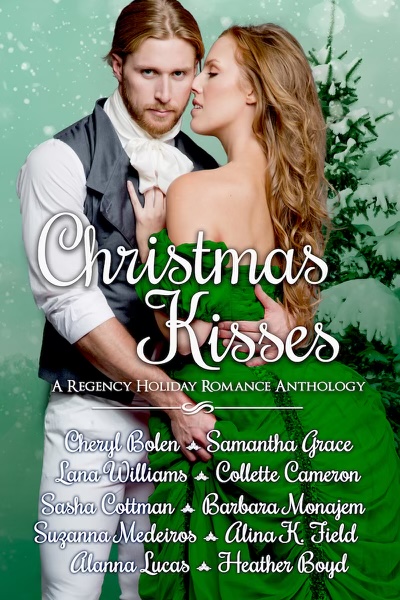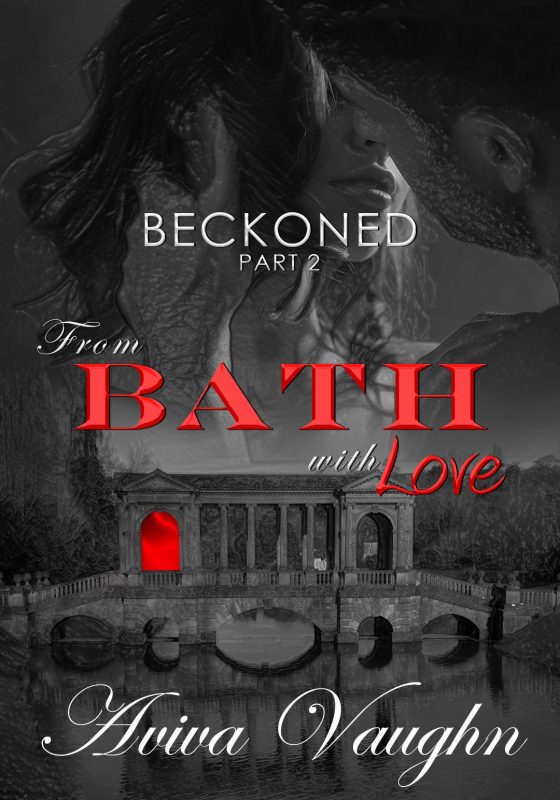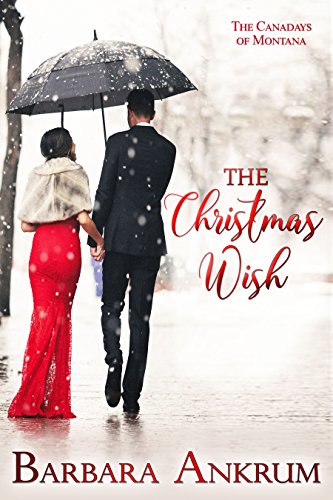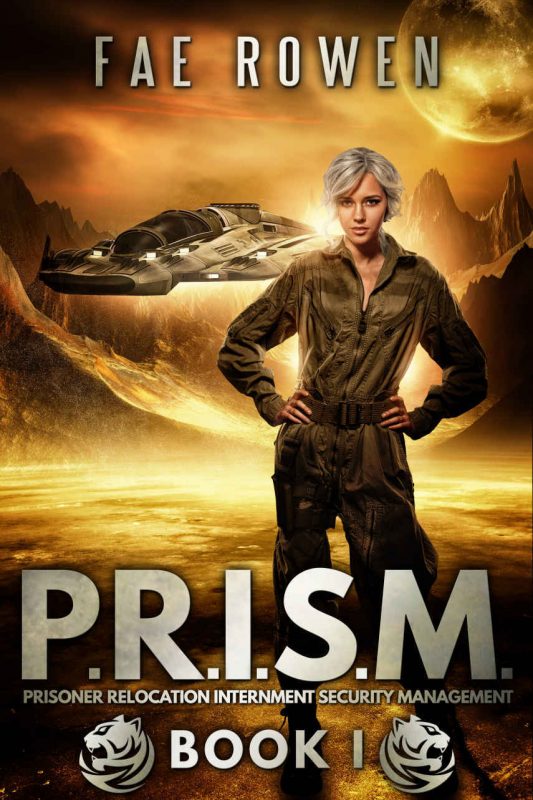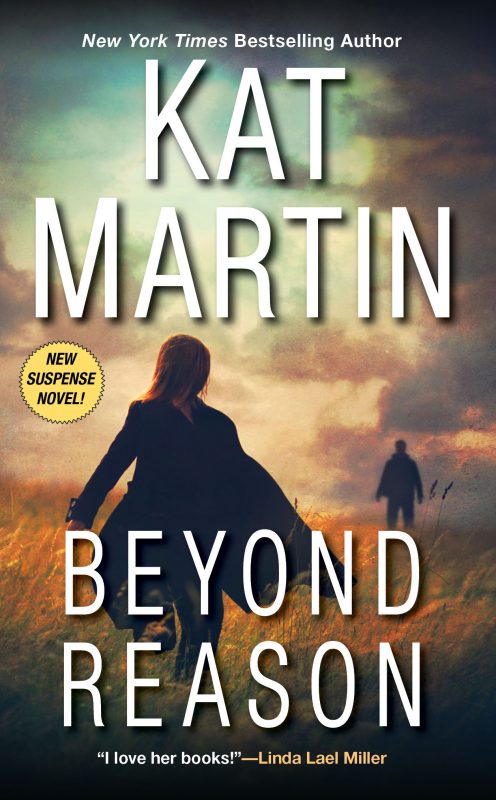Dear Extra Squeeze Team, What Kind of Editor Do I Need?
April 30, 2019 by The Extra Squeeze in category The Extra Squeeze by The Extra Squeeze Team tagged as Editors, proof reader
Dear Extra Squeeze Team, How do I know what kind of Editor to hire? What’s the difference between a developmental editor, a copy editor and a proof reader? Do I need all three?

USA Today Bestselling author of 35 books, including the Witness series and the new Finn O’Brien series.
In the spirit of full disclosure my fellow Extra Squeeze panel member, Jenny Jensen, is my editor. She has read and edited everything I have ever written.
She is all three rolled into one for me. Other clients will use her to proofread, copy edit and/or for developmental work.
Why do we work well together? Because a) she spends time understanding what my objective is with each book, b) she identifies shortcomings and offers suggestions on how to fix them, and c) she tells it like it is.
The last is very important to me. I don’t want to waste her time or mine, I don’t want praise when it isn’t warranted, I love it when she gives it because it’s deserved.
In my humble opinion, an author might possibly be able to copy edit (fix grammar, unwieldy phrasing, identify plot holes etc.) or proofread their work (missing words, typos) but it is almost impossible for us to properly evaluate the full content of our work.

Do you have a publishing question for The Extra Squeeze Team?
Use this form to send them to us.

Developmental editor who has worked for twenty plus years with new and established authors of both fiction and non-fiction, traditional and indie.
Good question. Answer from an editor: yes, you certainly could need all three, but the last two are critical.
A developmental editor works with an author at the macro level. The aim is to strengthen and/or develop the story. If you’ve hit a roadblock, or are uncertain of any aspect of your story and are looking for constructive feedback, or if working with an experienced fiction editor to bounce ideas is how you work best, use a developmental editor. Often my clients have several plot options in mind and with some energetic back and forth we find their direction.
The developmental process can begin at any stage. I’ve worked with clients who’ve just got a premise, characters sketches. Most have a detailed outline or a completed draft. The developmental editor focuses on plot, conflict, characterization, setting, resolution and narrative flow. A good developmental editor provides educated, useful input. It’s not about telling an author how to write the story. Developmental editing is about stimulating concepts, suggesting solutions and exposing what the writer has been blind to, always respecting an individual author’s voice.
A copy editor’s aim is to improve the writing. This is nuts and bolts editing and is done on an author’s absolute best, final draft—the one the author is confident of. Typos, incorrect grammar, punctuation, convoluted prose, poor word choice, issues with tense—anything that is incorrect or detracts from a smooth narrative flow is corrected. A copy edit is essential for a professional product, a book that stands the best chance to capture and keep readers, especially those who provide the all-critical reviews.
Proof reading is the final, micro level polish and can be done in conjunction with a copy edit. The proof reader catches errors that have been overlooked: there for their, your for you’re, to for too, etc., but also focuses on missing commas, dropped quotation marks, transposed words or letters. The list of possible errors that can slip past eyes that have been intent on story sense is scary. Again, this goes to professionalism. We’ve all read reviews that pan a book for typos. It’s those sorts of errors that can detract so heavily from an otherwise enjoyable read. Whatever else, all books should be proof read before publication. It should be law.
There are many sources to find editors. There’s me—I do all three types and I’ve got a lot of well-pleased clients! Reedsy has many free-lance contacts, as does She Writes. There are professional editor organizations: ACES has a very good list of freelance editors. Do an online search. Ask fellow writers; a personal referral is best. Be cautious of those “Publishers” that offer editorial services. A freelance editor with no vested interested in publishing your work is apt to provide more honest input.
SELF INFLICTED WOUNDS by Jenny Jensen
January 19, 2019 by Jenny Jensen in category On writing . . . by Jenny Jensen tagged as credibility, editing, Editors, self-publishing, typos
The Indie Revolution is the most exciting innovation since Google; it’s more refreshing than the demise of the mullet. It’s such a grand opportunity! It’s so… democratic. Anyone with the passion and discipline to write down the stories that live in their head can offer their work to the world. There are no subjective, judgmental, economic barriers blocking the way. Every avid reader can troll the newest book offerings looking for that next great discovery. When I find a fresh new voice with an exciting sense of drama, fascinating characters and a unique tale to spin it’s like winning the lottery (at least I imagine it is, having never won myself).
And we all know what they say about opportunity—it’s something to make the best of. That’s why I am so amazed how many Indie books contain errors of the sort that any good set of editorial eyes would have found and corrected. It’s a message to me, the reader, that I’m not important enough to make the book right. Or worse, the author thinks so little of me that I’ll accept any error, that I won’t notice or care.
How can I not care when DCI Stewart, ruggedly attractive in a wry funny way (this narrative already has me considering Book Two) has just gone through XXI chapters of intriguing madness to finally find the decisive evidence and as he lifts the shredded ribbon from the debris of the broken vase he cries, “Waa La!”. What!? Waa La? I’m out of the moment now, jerked rudely from the mounting tension. DCI Stewart is no longer clever or ingenious; he’s an idiot. Give the poor man a “Viola!”. I can’t bear to look at any more.
It’s a different kind of awful when the whip smart heroine finally descends the grand staircase to face her treacherous half siblings and the room falls silent, “the rustling tool of her elegant gown the only sound”. This instantly conjures hysterically unintentional images. Yikes, it’s toile. I want to scream. The story has lost all credibility. I can’t get my reading mojo back. Why didn’t this author care?
It’s one thing to accept a typo or two, even a few missing prepositions are forgivable (just remember all those reviews that say it would have been a 4 star except for the typos) but it’s a lot to ask your audience to overlook faulty word choice, a change of voice in mid-chapter, a glaring hole in the timeline, a nonsensical plot point or character traits that shifts mid stream.
Such errors are forgivable in any draft—that’s where the author gets the story down and who cares if a character proclaims it’s a “mute point”. Under the fresh, critical eye of an editor it will become a moot point. This is the stage where an objective eye sees what the writer has missed by staring so long at the trees. Maybe the story arc lags, maybe the narrative or characters are inconsistent, a good editor and the writer can fix it. Doesn’t the writer want it perfect?
Indie publishing is such a golden opportunity and writing a good book requires so much personal investment to get to a good draft it’s sad how many writers just blithely publish, warts and all. Take the extra step and work with an editor. Your book and your readers are worth it. We editors can to save you from shooting yourself in the foot.
4 0 Read moreCriticism: Big Girl Panties for Ruth by Jenny Jensen
May 25, 2018 by Jenny Jensen in category On writing . . . by Jenny Jensen tagged as constructive criticism, critiques, Editors, Jenny Jensen, writers
Criticism: Big Girl Panties for Ruth
Or How to Take It on the Chin and Grow
I attended an author’s chat the other day at our local library. It’s always fun to hear an author talk about their craft— especially if you like their books. The bonus is mingling with other attendees. Who among us doesn’t enjoy chatting with fellow book lovers? I found myself in conversation with two women, each funny, gracious and interesting. When talk got to the inevitable “so what do you do?” I learned Kit was a nurse and Ruth, a writer. I added that I’m an editor and while Kit smiled acknowledgment, Ruth scowled.
Ten minutes later—after Kit had smiled apologetically and bowed out—I’d learned all about Ruth’s experience with editors. “They call themselves editors, but they’re really just critics. They couldn’t even follow the story, let alone the subtext. They’re just mean, simple-minded wannabe writers” and so forth. Yowza! I’d never encountered that before. I know a lot of editors, and none of them fit that bill. Best to just nod and try to look sympathetic while keeping an eye peeled for a graceful escape. Ruth had either met the world’s worst editors, or she’s simply unable to handle criticism. I suspect the latter.
Writing is hard, solitary work. It’s just you creating in a vacuum. Writing requires hours of reading, writing and revising, searching for just the right words to make a character live and breathe, the perfect plot twist, the right feel. Writing writing writing, and then hours of revision. The whole blood, sweat and tears combo. Then there’s the criticism; every writer has to face it if they want to share their work outside that creative vacuum.
It can be a hard pill to swallow. I know. I’ve been singed by some very savvy, very critical edits. Hard to have your heart and soul — not to mention all that BS&T—picked to pieces by others. But like mammograms, taxes and dirty diapers, it has to be faced.
As an editor, I’m really loath to offer a ‘critique’. That word has such baggage. If words have color, then criticism is a red-tinged pulsating mash-up of bruised blue and black. I prefer to think of what I do as editorial assessment, or an overview. (Words really are powerful, aren’t they?!) But no matter how I spin it, it comes down to criticism.
Criticism is like cholesterol; there’s the good kind and the bad kind. The LDL kind, the bad kind, is empty criticism. “ I don’t like it”, “Flimsy and transparent” or “I don’t get it”. My favorite being, “yeah, I read it. Interesting”. Ouch! Then there is the polite, painless approach: “Very nice!” What could that possibly mean?
Constructive criticism is HDL cholesterol, good for every writer’s circulation. Good criticism points out pitfalls and weaknesses, but it also explains why they are pitfalls and weaknesses. It sheds light on why it doesn’t work. Really good, healthy criticism offers solutions. I never expect an author to accept a solution I offer (and most don’t, they find their own). I offer it as a straw man—something to consider, breakdown, reject and replace with a better approach because suggesting a substitute shows the author the problem needing a solution. It’s because a writer creates in isolation that they can’t always hear a misstep. I’m guessing Ruth’s missed subtext was so sub it wasn’t there. Point this out to a writer and the light bulb goes on; they revise, and the story is stronger.
How should you, as a writer, react to criticism? You wrote it, you shared it—you must learn to account for it. How do your words strike people? Did the reader see nothing where you intended a scene to be revealing or suggestive, and so the story is confusing? You can’t dismiss the reader as thick, dense or stupid. You have to look at your words and consider improvement because clearly, those words didn’t do the job you had intended. Whether it’s a missed plot point or character motivation that can’t be seen, maybe it isn’t on the page; it’s still in your head. Revise, rewrite. Listen to the audience your words are intended for. The best writers respect their readers. Your work will only get better.
A good editing critique helps you identify weaknesses. Don’t take it personally. Constructive criticism is useful precisely because it isn’t personal. Your BFF is unwilling to risk a response that might be hurtful, but is that what a writer needs?
Writing’s about kicking doubt in the ass and shoving him out the door. Editing’s about inviting him back in for tea and scrutiny. *
I wish Ruth had invited her editor back in.
*from @novelicious, that magical twitter feed that is double chocolate for every writer’s sweet tooth.
0 0 Read moreDear Extra Squeeze Team, Do I Really Need an Editor?
February 28, 2018 by The Extra Squeeze in category The Extra Squeeze by The Extra Squeeze Team tagged as critiques, Editors, writing
Dear Extra Squeeze Team, I was an English major in college. Do I really need to hire an editor for my self-published book?

Rebecca Forster
USA Today Bestselling author of 35 books, including the Witness series and the new Finn O’Brien series.
Dear I’m an English Major,
Me, too! That and twenty-five cents won’t get me a cup of coffee much less a polished book. Basically, even if I wrote Elements of Style, even if I was Shakespeare (okay, maybe not Shakespeare), I would still need an editor. Why? Because there are few human beings who can look at their own work objectively. If we could, we would catch ever plot hole, hear every piece of clanging dialogue that ruins our carefully drawn characters, and never miss a pacing problem. We would catch every missing conjunction, misspelled word and wayward apostrophe that found it’s (its) way into its (it’s).
If you’re still not convinced, ask yourself these three questions:
1) Have you ever asked someone if you look fat in a new dress?
2) Have you ever uttered the words ‘what do you think?’ (about anything)
3) Have you ever talked through a problem late into the night with someone you trust?
If the answer to any (or I bet all) of these questions is yes, you need an editor. We search out that critical eye and the honest voice in our lives and we should do the same with our work. Our lives and our books will be better for it.
Love,
Rebecca Forster
USA Today & Amazon Best-selling Author
Flawed English major/content editorial client
Secret Relations, Book #3 in the Finn O’Brien Thriller Series launches March 3, 2018
Read a Snek Peek and get your copy now!
Website
Facebook
Twitter: @Rebecca_Forster
INSTAGRAM: REBECCAFORSTER1211
Subscribe and get my 2-book starter library:
Bookbub
Happy Reading Everyone!

Jenny Jensen
Developmental editor who has worked for twenty plus years with new and established authors of both fiction and non-fiction, traditional and indie.
Yes!
You may know pluperfect from a transitory verb. You may be meticulously accurate with every comma, semi-colon, quotation mark, em-dash and ellipse. You may be a practiced writer fluent in multiple literary forms, but you cannot read your own work with a neutral, critical eye.
The act of writing is a solitary endeavor. A story is conceived in the mind and is played with, tweaked, adjusted, re-written until it becomes, in the writer’s mind a complete and sensible whole. That process often involves input from other writers and beta readers while the work is in progress. These are trusted voices that become part of the process as you bring the story from your mind to its final form. The input you’ve received has been beneficial in making it a better work. But each of these sources has an investment, either as support from a writers group or from someone, like a relative or friend with a degree of closeness – either way, each source has a personal investment in you. However incidental or deep that investment is, it is not neutral.
Your finished book was hard work; countless rewrites and revisions prompted by your own senses and perhaps the input from those other writers and/or beta readers. It’s time to step away and put the work before neutral eyes. An editor provides that neutral set of eyes; think of it as a reality check.
The only investment an editor has is to help your story be the best it can be. An editor will tell you how you sound to a discerning ear reading the work for the first time. An editor will hear when the pacing begins to drag or a character or plot point is inconsistent. Stilted dialog or rambling narrative will sound to an editor like fingernails on a chalkboard. An editor will hear if what you wrote is actually what you meant. An editor’s job is to tell you precisely what those clinkers are, and if she is good, she will tell you why something doesn’t work and suggest solutions. It’s a collaborative effort.
If you do not feel you need a full content edit then opt for a critical read and respond. At the very least, get a copy/line edit. You cannot always see your mistakes – not the big ones or the small ones. Shamelessly I’ll say I’d love to read your work. And yes, there is a fee – it’s a profession.
Robin Blakely
PR/Business Development coach for writers and artists; CEO, Creative Center of America; member, Forbes Coaches Council.

Extra Squeeze members H.O. Charles and Rebecca Forster have new books.
ASCENT OF ICE by H. O. Charles is available today
The final volume of The Fireblade Array.
Medea is trapped in a fortress made of shadows, Artemi has had her life rent from her yet again, and fate looms over all.
Some heroes battle to save the world from the icy grip of darkness, but others fight to make it darker still.
Will the boundaries between light and night, ice and fire, love and hate ever be restored?
Rebecca Forster’s 3 Finn O’Brien Thriller, SECRET RELATIONS is available for pre-order now with a March 3, 2018 publish date.
The last thing Finn O’Brien wants is to come between his partner and her daughter, but Amber Anderson is desperate for his help. Her new boyfriend, an undocumented immigrant, is missing. Uneasy about keeping a secret from his partner and hindered by the prejudice and politics of the LAPD, Finn is tempted to turn a deaf ear to the girl’s plea – until the first body is found.
H.O. Charles
Cover designer and author of the fantasy series, The Fireblade Array
Yes! EVERYONE needs an editor, and there’s some evidence to suggest that overconfidence can lead to more mistakes!
Marianne is always picking up my typos, so I must be very clever indeed… or too confident. If you want to save money, I would suggest getting a reasonably literate friend or two to read through your drafts. You’ll be surprised how much they pick up. Another thing to consider is what kind of writing you’ve been doing as an English major (ignoring for a moment what you’ve been reading). I did an essay subject at university, but I soon found novel writing employed a whole different raft of writing skills, for which essay writing offered very little foundation. The way I was taught (not sure if different in the US) involved very strict limitations on the usage of commas, third-person perspective, ‘masculine’ statements, rigid paragraph formation etc. etc. All of these rules had to be unlearned.
An editor can also point out the bits where your story might be drifting, find plot holes, and tell you where something needs more explanation. (Note my Oxford comma, which I would NEVER have used in academia!)
Do you have a writing or publishing question?
Send them to the Extra Squeeze Team!
Ever wonder what industry professionals think about the issues that can really impact our careers? Each month The Extra Squeeze features a fresh topic related to books and publishing.
Amazon mover and shaker Rebecca Forster and her handpicked team of book professionals offer frank responses from the POV of each of their specialties — Writing, Editing, PR/Biz Development, and Cover Design.

Remember use our handy dandy contact form to ask a question.
Drafts by Jenny Jensen, Editor @A_SliceofOrange
October 19, 2017 by Jenny Jensen in category On writing . . . by Jenny Jensen tagged as editing, Editors, first drafts, Quotes Drafts
Drafts
I love quotes. I collect them, especially quotes about writing from writers I particularly respect. Since I work with writers of all levels from beginners to veterans, I find that sometimes the perfect quote from an established writer is exactly what I need to reinforce a point – so I use my collection well.
I just took on a new client who sent an outline for her first novel. The outline included a précis of the plot, quick character sketches, a few narrative bits on action scenes and several options for an ending. Buried in these concepts were the seeds of a very fresh new voice. I’m excited; it’s the kind of challenge I relish. It’s the perfect opportunity to ask the right questions, provide possibilities and help guide the story to a solid structure – all of which greases the writer’s creative wheels – the give and take nudging them to the path they want for their story.
Shitty First Drafts
The problem was the writer didn’t want to write a draft; she wanted to work with me to get the story full blown in her head then sit down at the keyboard and spit out a finished novel. Oh dear. I imagine there are writers who can do that but they’re as rare as the ivory-billed woodpecker. As Anne Lamott put it in her essay, Shitty First Drafts: “I know some very great writers, writers you love who write beautifully and have made a great deal of money, and not one of them sits down routinely feeling wildly enthusiastic and confident. Not one of them writes elegant first drafts. All right, one of them does, but we do not like her very much.”
“The first draft is just you telling yourself the story.” (TY Terry Pratchett.)
All first drafts suck. It’s a universal law. But it’s where you have to start. “The first draft is just you telling yourself the story.” (TY Terry Pratchett.) So give yourself permission to just spill it, write the most vapid dialog ever if that’s what comes out. It’s OK – it’s a draft. Just get the story out. If you find yourself using more adjectives than Danielle Steele and Judith Krantz combined then this is the place to do it. It’s a draft -no one will ever see it (except me but that’s all right ‘cuz I’ll never tell). Stewart Stafford hit the bull’s eye, “It’s okay to write a cliché in a first draft; it sets a marker that you can get far, far away from in the rewrites.”
The Rewrites
That’s what a draft is for – the rewrites. Here’s where the painful process of filling the blank page becomes fun. You see the flaws and get to slash and revise, hear the perfect dialog over the noise of what you drafted, maybe see a new direction in the wreckage. I’ve encouraged my client to write a first draft. I’ll happily work with her from that, but I bet she goes over it first – who could resist? Draft one or draft two, I don’t care. I can’t wait to see it.
Jenny

Jenny Jensen
Editor
www.e-bookeditor.com
With a BA in Anthropology and English I pursued a career in advertising and writing and segued into developmental editing. It was a great choice for me. I love the process of creating and am privileged to be part of that process for so many great voices — voices both seasoned and new.
I’ve worked on nearly 400 books over 20 years, books by noted authors published by New York houses including Penguin, Kensington, Pentacle and Zebra as well as with Indie bestsellers and Amazon dynamos. From Air Force manuals and marketing materials to memoirs, thrillers, sci fi and romance, my services range from copyediting to developmental coaching.
Having worked in advertising and marketing, I am always cognizant of the marketplace in which the author’s work will be seen. I coach for content and style with that knowledge in mind in order to maximize sales and/or educational potential. My objective is to help the author’s material stand out from an ever more crowded and competitive field.
6 0 Read moreAffiliate Links
A Slice of Orange is an affiliate with some of the booksellers listed on this website, including Barnes & Nobel, Books A Million, iBooks, Kobo, and Smashwords. This means A Slice of Orange may earn a small advertising fee from sales made through the links used on this website. There are reminders of these affiliate links on the pages for individual books.
Search A Slice of Orange
Find a Column
Archives
Featured Books
CHRISTMAS KISSES
Heat up the holiday with ten dreamy regency rogues!
More info →BECKONED, PART 2: FROM BATH WITH LOVE
Can fire and ice both survive?
More info →THE CHRISTMAS WISH
Will Eve find it’s possible that Christmas wishes aren’t only for little girls?
More info →P. R. I. S. M.
Can O'Neill and Jericho work together to unravel lies on both planets and still obtain the respect Jericho craves and the independence O'Neill needs?
More info →BEYOND REASON
She’s determined to be successful—no matter who tries to stop her.
More info →Newsletter
Contributing Authors
Search A Slice of Orange
Find a Column
Archives
Authors in the Bookstore
- A. E. Decker
- A. J. Scudiere
- A.J. Sidransky
- Abby Collette
- Alanna Lucus
- Albert Marrin
- Alice Duncan
- Alina K. Field
- Alison Green Myers
- Andi Lawrencovna
- Andrew C Raiford
- Angela Pryce
- Aviva Vaughn
- Barbara Ankrum
- Bethlehem Writers Group, LLC
- Carol L. Wright
- Celeste Barclay
- Christina Alexandra
- Christopher D. Ochs
- Claire Davon
- Claire Naden
- Courtnee Turner Hoyle
- Courtney Annicchiarico
- D. Lieber
- Daniel V. Meier Jr.
- Debra Dixon
- Debra H. Goldstein
- Debra Holland
- Dee Ann Palmer
- Denise M. Colby
- Diane Benefiel
- Diane Sismour
- Dianna Sinovic
- DT Krippene
- E.B. Dawson
- Emilie Dallaire
- Emily Brightwell
- Emily PW Murphy
- Fae Rowen
- Faith L. Justice
- Frances Amati
- Geralyn Corcillo
- Glynnis Campbell
- Greg Jolley
- H. O. Charles
- Jaclyn Roché
- Jacqueline Diamond
- Janet Lynn and Will Zeilinger
- Jaya Mehta
- Jeff Baird
- Jenna Barwin
- Jenne Kern
- Jennifer D. Bokal
- Jennifer Lyon
- Jerome W. McFadden
- Jill Piscitello
- Jina Bacarr
- Jo A. Hiestand
- Jodi Bogert
- Jolina Petersheim
- Jonathan Maberry
- Joy Allyson
- Judy Duarte
- Justin Murphy
- Justine Davis
- Kat Martin
- Kidd Wadsworth
- Kitty Bucholtz
- Kristy Tate
- Larry Deibert
- Larry Hamilton
- Laura Drake
- Laurie Stevens
- Leslie Knowles
- Li-Ying Lundquist
- Linda Carroll-Bradd
- Linda Lappin
- Linda McLaughlin
- Linda O. Johnston
- Lisa Preston
- Lolo Paige
- Loran Holt
- Lynette M. Burrows
- Lyssa Kay Adams
- Madeline Ash
- Margarita Engle
- Marguerite Quantaine
- Marianne H. Donley
- Mary Castillo
- Maureen Klovers
- Megan Haskell
- Melanie Waterbury
- Melisa Rivero
- Melissa Chambers
- Melodie Winawer
- Meriam Wilhelm
- Mikel J. Wilson
- Mindy Neff
- Monica McCabe
- Nancy Brashear
- Neetu Malik
- Nikki Prince
- Once Upon Anthologies
- Paula Gail Benson
- Penny Reid
- Peter Barbour
- Priscilla Oliveras
- R. H. Kohno
- Rachel Hailey
- Ralph Hieb
- Ramcy Diek
- Ransom Stephens
- Rebecca Forster
- Renae Wrich
- Roxy Matthews
- Ryder Hunte Clancy
- Sally Paradysz
- Sheila Colón-Bagley
- Simone de Muñoz
- Sophie Barnes
- Susan Kaye Quinn
- Susan Lynn Meyer
- Susan Squires
- T. D. Fox
- Tara C. Allred
- Tara Lain
- Tari Lynn Jewett
- Terri Osburn
- Tracy Reed
- Vera Jane Cook
- Vicki Crum
- Writing Something Romantic
Affiliate Links
A Slice of Orange is an affiliate with some of the booksellers listed on this website, including Barnes & Nobel, Books A Million, iBooks, Kobo, and Smashwords. This means A Slice of Orange may earn a small advertising fee from sales made through the links used on this website. There are reminders of these affiliate links on the pages for individual books.









